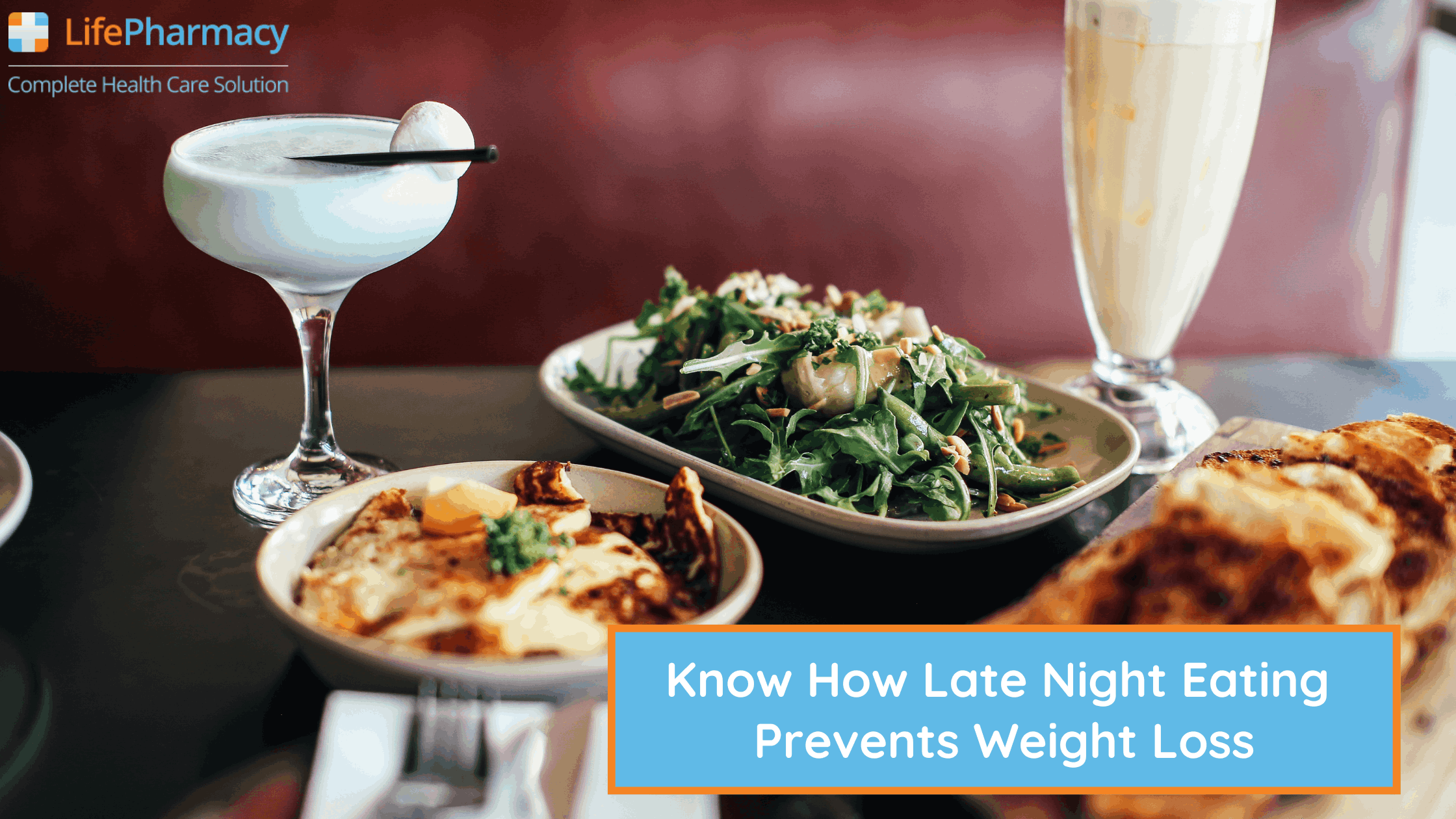Obesity is a silent health killer, affecting a large portion of the adult population, especially in the developed world. However, it has become a serious health concern as it contributes to the onset of chronic diseases, including diabetes, cardiovascular problems, and cancer.
Weight gain may be due to several reasons; people's most common advice is to avoid sugary and fatty foods, exercise regularly, drink more water, and eat more wholesome home-cooked foods, including fruits, veggies, cereals, etc. However, many medical practitioners believe that weight loss can be influenced by the time you eat.
Many of us have this strong craving late at night to destress after an eventful day when we feel like binge-eating while watching our favorite show. It is hard to fight this desire, but at the back of our minds, we know that late-night eating affects our health. While mealtime can pose a risk of gaining weight, other factors, such as the calorie you intake and burn throughout the day, cannot be ignored.
We have curated this blog to clarify all your doubts; read further to know how midnight snacking can promote a negative profile of weight :
What is our circadian rhythm?
Circadian rhythm refers to the physical, mental, and behavioral processes that the body goes through in a 24-hour cycle. Circadian rhythms are controlled by a small area in the middle brain and usually occur in response to stimuli from our environment, particularly light or darkness, which is responsible for regulating our sleep patterns.
The big question: How is it linked to weight loss or gain? In addition to regulating sleep, another important physiological process that circadian rhythm controls are your body’s metabolism. Metabolism is a crucial but complex chemical process by which your body converts food into energy. During this process, calories in food and beverages you intake are combined with oxygen to release energy required by your body for different bodily functions. Due to this strong connection between metabolism and circadian rhythm, anything that influences your circadian rhythm can directly impact your weight. Although one cannot deny the significance of circadian rhythm, if your total calorie input falls within your daily needs, weight gain does not appear to happen simply due to late-night eating.
Does eating late affect weight loss?

According to your circadian rhythm, “Eat late, gain weight” holds as night is meant for resting, not eating. Many researchers claim that eating late could significantly affect how your body metabolizes food as it disrupts the circadian rhythm and body clock. It can affect hormone regulation and organ functioning, especially regarding digestion. You can order digestive care pills from an online chemist shop to aid in digestive problems.
The math here is simple; if you eat a late dinner, it is found that it leads to a 4-hour shift in the postprandial period. It is the phase during which the nutrients in the food are metabolized after digestion. So, if this phase shifts, it will overlap with the sleep phase of the body, increasing glucose levels in the body while sleeping. Conversely, it declines the breakdown of fatty acids. So, if it is a norm to eat late daily, this could increase sugars and fatty acids in the body, causing weight gain.
Another drawback of late-night eating that has been reported is that the postprandial shift amounts to a rise in plasma cortisol, thus leading to increased stress. An increase in stress could interfere with keeping your heart healthy. UK pharmacy offers a range of healthy heart products to keep your heart in good condition.
Researchers believe that when we consume our dinner late or eat midnight snacks (1-2 hours before sleeping), our bodies do not get enough time to digest the food. This means whilst we are asleep; our body is still digesting the food. This can certainly impact the quality of our sleep, affecting neurotransmitter regulation and causing a sharp increase in appetite. In addition to an increase in appetite, sleep deprivation increases cravings for foods high in carbs and calories, escalating the chance of putting on weight.
What are some bad habits of late-night eating?

Although some researchers strongly decline the claim that eating late causes weight gain, we believe that certain bad habits related to late-night eating can certainly contribute to weight gain.
These include:
-
If you consume the required calories during the day and decide to indulge in late-night snacking, you’ll exceed your calorie needs for the day. Therefore, regulating your calorie count is a must before you decide to satisfy your midnight hunger pangs.
-
After a tiring day, your decision-making might get impaired at night. During the day, most of us are more likely to make healthy eating choices, while at night, when you are tired, and there is not much option available, it is easier just to grab a bag of chips or a box of ice cream. The guilt may hurt knowing that these foods are certainly high in calories, but it is difficult to resist the temptation then.
-
Sitting and relaxing in front of the TV or smartphone while eating at night is not uncommon to beat boredom or stress. But unfortunately, very few of us tend to realize how much we tend to consume with this mindless eating.
-
Another problem noticed in late-night eaters is that you might make your body go without food for a very long time. The time between two meals may become significantly large, making you susceptible to Type 2 diabetes. A large gap between two meals also increases your hunger levels, making you naturally opt for larger portions.
If you are diagnosed with Diabetes, purchase our diabetes testing kit now!
How can you eat at night without causing havoc on your health?
Sometimes it is impossible to make certain lifestyle changes; work routines may force many people to eat late-night meals or snacks. But if you are mindful while you eat your late-night meal, you can sleep well, eat less overall, and maintain consistent blood sugar levels throughout the day.
Here are some tips from UK online pharmacies:
-
You must plan your daily calorie input; if you tend to consume more calories at night, control your calorie intake during the day. For example, stay away from unhealthy, high-calorie foods like chips, ice creams, and beverages at night. Instead, switch to low-fat yogurt or fruits for your midnight snacking.
-
If you can't keep your hands off desserts and junk foods, ensure that you don't overeat. Control your portion of calorie-laden foods to keep your weight in control.
-
If possible, eat your meals at regular intervals and try to have your dinner before 8.00 p.m. Eating meals every three to four hours helps regulate your blood sugar levels and thus control hunger and cravings.
-
Don't skip breakfast to jumpstart your metabolism, and make better food choices throughout the day. To curb your late-night hunger, grab a protein and fiber-rich dinner to make you feel full.
Conclusion
Although late-night eating does mess with the body's cycle, it is the bad habits that lead to weight gain. Along With lifestyle changes, one can opt for alternative weight loss treatment for effective results. With the weight loss treatment from Life pharmacy UK, you can achieve the weight of your dreams!






